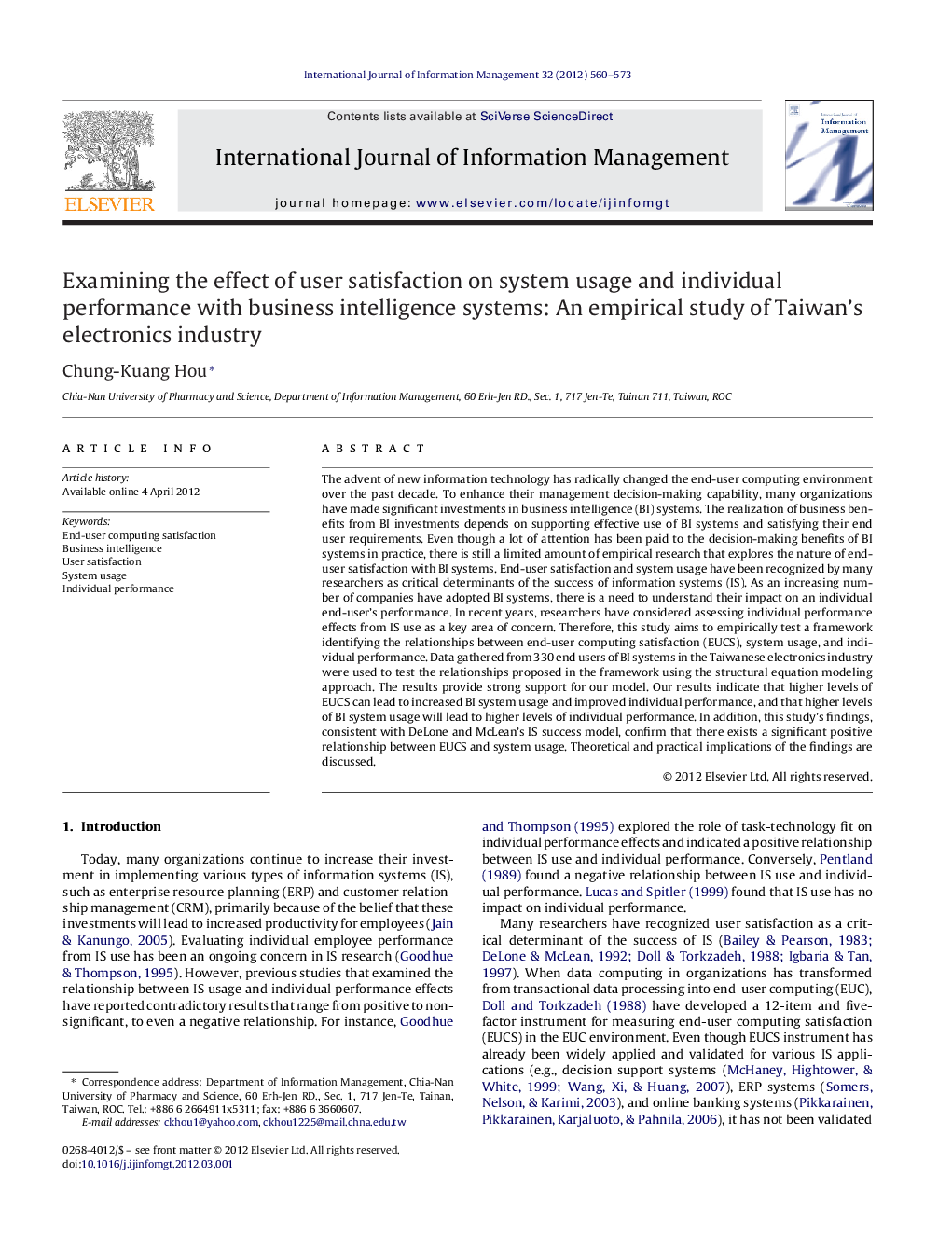| Article ID | Journal | Published Year | Pages | File Type |
|---|---|---|---|---|
| 1025939 | International Journal of Information Management | 2012 | 14 Pages |
The advent of new information technology has radically changed the end-user computing environment over the past decade. To enhance their management decision-making capability, many organizations have made significant investments in business intelligence (BI) systems. The realization of business benefits from BI investments depends on supporting effective use of BI systems and satisfying their end user requirements. Even though a lot of attention has been paid to the decision-making benefits of BI systems in practice, there is still a limited amount of empirical research that explores the nature of end-user satisfaction with BI systems. End-user satisfaction and system usage have been recognized by many researchers as critical determinants of the success of information systems (IS). As an increasing number of companies have adopted BI systems, there is a need to understand their impact on an individual end-user's performance. In recent years, researchers have considered assessing individual performance effects from IS use as a key area of concern. Therefore, this study aims to empirically test a framework identifying the relationships between end-user computing satisfaction (EUCS), system usage, and individual performance. Data gathered from 330 end users of BI systems in the Taiwanese electronics industry were used to test the relationships proposed in the framework using the structural equation modeling approach. The results provide strong support for our model. Our results indicate that higher levels of EUCS can lead to increased BI system usage and improved individual performance, and that higher levels of BI system usage will lead to higher levels of individual performance. In addition, this study's findings, consistent with DeLone and McLean's IS success model, confirm that there exists a significant positive relationship between EUCS and system usage. Theoretical and practical implications of the findings are discussed.
► The research framework was empirically examined using structural equation modeling based on survey data from 330 respondents in the Taiwanese electronics industry. ► This study empirically validates a significant bidirectional positive relationship between system usage and EUCS that has already been proposed by DeLone and McLean in their IS success model. ► Our results indicate that system usage and EUCS both influence the individual performance by using the BI system. ► The study should enable managers to gain a better understanding of the relationships between end-user satisfaction, system usage, and individual performance to assess the benefits of the BI system implementation.
